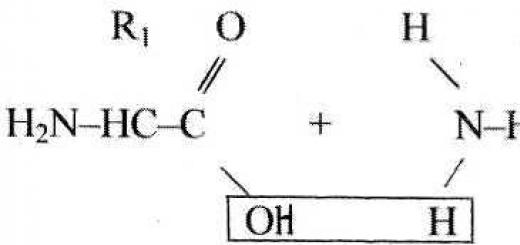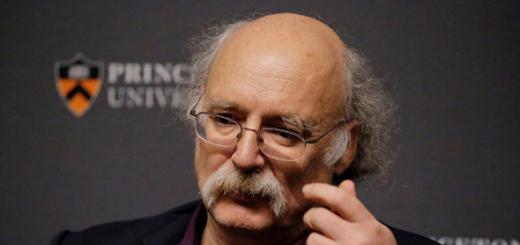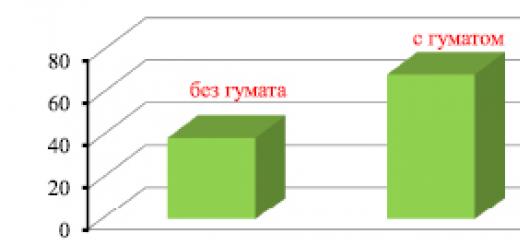AGREEMENT
about networking and collaboration
g______________________ “___”__________20___ g.
State Autonomous Professional Educational Institution of the Republic of Khakassia "Sayanogorsk Polytechnic College", hereinafter referred to as Party No. 1, represented by Director Natalya Nikolaevna Karkavina, acting on the basis of the Charter, on the one hand, and the State Budgetary Professional Educational Institution of the Republic of Khakassia "Montenegro Mechanical and Technological College" ", hereinafter referred to as Party No. 2, represented by Director Natalya Ivanovna Polikarpova, acting on the basis of the Charter, on the other hand, have entered into this agreement as follows:
1. The Subject of the Agreement
1.1. The subject of this agreement is the agreement of the parties on joint activities on network interaction in order to train qualified workers and specialists in the field of energy, coordination of joint activities on network interaction.
1.2. Network interaction between the parties means:
- joint development in accordance with the requests of employers of educational programs (basic vocational educational programs, short-term programs of professional training and advanced training for workers and mid-level specialists), their social and professional expertise;
- joint implementation of educational programs.
1.3. The mechanism for implementing network educational programs between the parties is as follows:
- placement of developed work programs of academic disciplines and professional modules, educational and methodological materials in the public domain for participants in network interaction;
- use of the material base of Party 1 for conducting classes, educational and (or) industrial practice;
- use of the personnel potential of Party 1;
- internships for teachers of Party 2 in units of Party 1;
- joint assessment of students’ professional competencies.
2. Purpose and objectives of the agreement
2.1. The purpose of this agreement is to modernize the system of secondary vocational education for training specialists in the field of energy, reorientation of the vocational education system to the needs of key enterprises in the energy and electrical industries of the region;
2.2. The main objectives of this agreement are:
- joint activities of the parties to create, develop and implement effective models and mechanisms for interaction between vocational education institutions and employers on the basis of the resource center;
- ensuring openness and accessibility of available educational resources (material and technical, methodological, informational, personnel, system of relations with employers as a resource) for training specialists in the field of energy for their network consolidation;
- introduction of new specialties, additional specializations at the request of employers based on new tasks of technical and technological re-equipment of the industry.
3. Responsibilities of the parties
3.1. Party 1 is obliged:
3.1.1. Create conditions for joint development of educational programs (main and additional) with Party 2.
3.1.2. Develop educational and planning documentation for basic and additional educational programs, taking into account the results of monitoring the needs of Party 2.
3.1.3. Organize the selection, training and support of the work of personnel providing network interaction activities.
3.1.4. Organize joint seminars, various informational and scientific-methodological events for network interaction participants.
3.1.5. Ensure the use of information technologies in all forms of network interaction:
- in collecting information during monitoring;
- in providing a distance learning environment;
- in organizing and conducting joint events based on distance communication.
3.1.6. To develop and test training programs for training technical specialists in the field of energy, using the resources of a network of educational institutions based on the Republican Resource Center for Energy and Electrical Engineering.
3.1.7. Carry out network implementation of advanced training, training and retraining of workers and specialists of Party 2 in innovative areas of development of the energy industry.
3.2. Party 2 is obliged:
3.2.1. Participate with Party 1 in the joint development of educational programs (main and additional).
3.2.2. Assist Party 1 in conducting an examination of educational and methodological documentation of professional educational programs for training specialists in the field of energy.
3.2.3. Participate with Party 1 in the network implementation of developed educational programs.
4. Rights of the parties
The parties have the right:
4.1. Use consolidated educational resources in accordance with the established regulations for network interaction.
4.2. Make proposals to improve the training of specialists in the field of energy and organization of network interaction.
4.3. Participate in events organized by the Republican Resource Center for Energy and Electrical Engineering.
5. Other terms of the agreement
5.1. All controversial issues between the parties are resolved through negotiations. If the parties fail to reach agreement, a dispute resolution commission is created.
5.2 The Agreement can be terminated, amended or supplemented only by mutual agreement of the parties, provided that the additions and changes are made in writing and signed by authorized persons.
5.3. This agreement is drawn up in two copies having equal legal force, one copy for each of the parties.
6. Duration of the contract
6.1 This agreement comes into force from the moment it is signed and is valid for 3 years.
7. Addresses and signatures of the parties
| Side 1 | Side 2 | |
| State Autonomous Professional Educational Institution of the Republic of Khakassia "Sayanogorsk Polytechnic College" Address: _____________________, _____________________, _____________________, _____________________ microdistrict, d.___ Telephone: _____________________, fax _____________________4 e-mail: _____________________ Director ________________ Karkavina N.N. | State budgetary professional educational institution of the Republic of Khakassia "Montenegro Mechanical and Technological College" Address: _____________________ _____________________, st. _____________________, d. ___ Telephone: _____________________ e-mail: _____________________ Director ______________ |
The possibility of a network form of implementation is provided for “On Education in the Russian Federation” (hereinafter referred to as the Federal Law “On Education in the Russian Federation”).
According to Part 1 of Art. 15 of this regulatory act provides the opportunity for students to master an educational program using the resources of several organizations, namely:
- organizations carrying out educational activities;
- scientific organizations;
- medical organizations;
- cultural organizations;
- physical culture and sports organizations;
- other organizations that have the resources necessary to carry out training, conduct educational and practical training and carry out other types of educational activities provided for by the relevant educational program.
Thus, the network form of implementation of educational programs involves the use of resources from several legal entities, including those not related to the field of education.
Determining the content of the contractOnetwork form of educational program implementation
The interaction of organizations participating in the implementation of educational programs is formalized by an agreement. The mandatory conditions of such an agreement are listed in Part 3 of Art. 15 of the Federal Law “On Education in the Russian Federation”. These include:
1) type, level and (or) focus of the educational program (part of an educational program of a certain level, type and focus), implemented using a network form;
2) the status of students in organizations, rules for admission to study in an educational program implemented using a network form of implementation of an educational program, the procedure for organizing academic mobility of students (for students in basic professional educational programs) mastering an educational program implemented using a network form;
3) the conditions and procedure for implementing the network form of implementing the educational program, including the distribution of responsibilities between organizations, the procedure for implementing the educational program, the nature and amount of resources used by each organization implementing the educational program through the network form;
4) issued document or documents on education and (or) qualifications, document or documents on training, as well as organizations carrying out educational activities that issue these documents;
5) the duration of the agreement, the procedure for its amendment and termination.
By type, an agreement on the network form of implementation of an educational program can be an agreement for the provision of services for a fee, for the provision of services free of charge, or mixed, i.e., containing elements of various agreements provided for by law or other legal acts.
To understand the content of the agreement on the network form of implementation of the educational program, it is necessary to proceed from the fact that clause 9 of Art. 2 of the Federal Law “On Education in the Russian Federation”, the educational program is defined as a set of basic characteristics of education (volume, content, planned results), organizational and pedagogical conditions and, in cases provided for by this law, forms of certification, which is presented in the form of a curriculum, calendar educational schedule, work programs of academic subjects, courses, disciplines (modules), other components, as well as assessment and teaching materials.
It follows from this that organizations that are parties to the agreement on the network form of implementation of the educational program must act within the framework of the general curriculum and calendar educational schedule, and also use uniform assessment and methodological materials corresponding to the given program. At the same time, educational subjects, courses, disciplines (modules) and other elements of the “complex” can be distributed between organizations according to the resources they have in order to ensure better implementation of a unified educational program.
The main mechanisms ensuring the use network form implementation educational programs, are the conclusion of an agreement between organizations - participants of the network form and joint development And approval by organizations implementing educational activities, educational programs.
If the educational program is implemented at the expense of budget funds in order to ensure the right to free education within the framework of a state (municipal) task and, accordingly, is paid for with budget subsidies for the implementation of such a task, then the contract must stipulate:
1) payments by the parties for the educational services provided;
2) procedure and terms of payment for services:
- on the part of the organization performing part of the educational program;
- on the part of the organization carrying out educational activities and receiving a budget subsidy to complete the task of carrying out such educational activities.
Harmonization of contractOnetwork form of implementation of an educational program with the founder
In the network form of implementation of an educational program, part of the state (municipal) task is actually carried out by another organization. In this regard, the question arises about the procedure for transferring authority to perform this task.
According to the general principles of civil law, the transfer of any type of activity of a legal entity (including part of the main statutory activity) to other persons is allowed on the basis of an agreement in the manner of so-called outsourcing. Since in this case the task is formed and financed by the founder for a specific organization, often listed in the departmental list of state (municipal) services, the agreement on the network form of implementation of the educational program should be agreed upon with the founder. The basis for approval (if we are talking about a school) will be the norms of the Federal Law “On Education in the Russian Federation” and the Procedure for organizing and implementing educational activities for basic general education programs - educational programs of primary general, basic general and secondary general education”, approved by order of the Ministry of Education and Science Russia dated August 30, 2013 No. 1015. At the same time, the educational organization participating in the implementation of this program may also be indicated in the departmental list of state (municipal) services at the discretion of the founder as a co-executor. If several educational organizations provide paid
educational services in a network form; agreement on an agreement on a network form of implementation of an educational program with the founder is not required.
In practice, individual students (their parents) can choose paid extracurricular activities (clubs, sports sections, etc.) to complete the main educational program, in accordance with their interests and inclinations. This is not prohibited by law.
Likewise, students may choose to receive full compulsory education from private schools, even though compulsory education is free for citizens and guaranteed by the state. In this case, attendance at paid extracurricular classes must be formalized by an agreement, and the organization certifying the student has the right to count these classes as mastering the extracurricular part of the main educational program and make a corresponding recalculation (reduction) of the financial support standard.
Meaning of the contractOnetwork form of educational program implementation
The network form of implementation of educational programs makes it possible to provide higher quality education to students in cases where the resources of the educational organization (personnel, logistics, etc.) in which they study are insufficient.
However, we can talk about a network form of implementation of educational programs not only in the case of organizing the main educational activities of students, but also additional ones. It is known that not all educational organizations can fulfill the requirements of federal state educational standards for the implementation of extracurricular activities - they do not have the appropriate material and technical base or specialists. Such organizations can implement the extracurricular part of the educational program through cooperation with an institution of additional education for children.
By the way, the federal state educational standards also speak of the need to develop network interaction between educational and other organizations.
Thus, clause 17 of the Federal State Educational Standard for Primary General Education, approved by Order of the Ministry of Education and Science of Russia dated October 6, 2009 No. 373 (hereinafter referred to as the Standard for Primary General Education), establishes that the main educational program of primary general education is implemented through the organization of training courses and extracurricular activities. In the absence of the opportunity to implement extracurricular activities, the educational institution, within the framework of the relevant state (municipal) tasks formed by the founder, uses the capabilities of educational institutions for additional education of children, cultural and sports organizations.
According to clause 23 of the Standard for Primary General Education, conditions must be created in the education system for integrated interaction of educational institutions, providing the opportunity to replenish missing human resources, provide ongoing methodological support, receive prompt advice on the implementation of the basic educational program of primary general education, and use the innovative experience of others about-
educational institutions, conducting comprehensive monitoring studies of the results of the educational process and the effectiveness of innovations.
InitiallyWithnetwork form of implementation of educational programs actively developed within activities of federal experimental sites. The basic principles of this interactions were consolidated by order of the Ministry of Education Russia dated 03/09/2004 No. 1123 "About the organization experienced- experimental activities in the education system."
Similar provisions are contained in the Federal State Educational Standard of Basic General Education, approved by Order of the Ministry of Education and Science of Russia dated December 17, 2010 No. 1897 (hereinafter referred to as the Standard of Basic General Education), and the Federal State Educational Standard of Secondary (Complete) General Education, approved by Order of the Ministry of Education and Science of Russia dated May 17, 2012 No. 413 (hereinafter referred to as the Standard of Secondary (Complete) General Education).
In particular, clause 15 of the Basic General Education Standard states that in order to meet the individual needs of students, the basic educational program of basic general education provides for training courses and extracurricular activities, and clause 16 states that in the absence of the opportunity to implement extracurricular activities, the educational institution, within the framework of the relevant state (municipal) tasks formed by the founder, uses the capabilities of educational institutions for additional education of children, cultural and sports organizations.
According to clause 21 of the Standard of Secondary (Complete) General Education, the conditions for the implementation of the main educational program must provide participants in the educational process with the opportunity, including:
- development of the individual, his abilities, formation and satisfaction of socially significant interests and needs, self-realization of students through the organization of classroom and extracurricular activities, social practice, socially useful activities, through a system of creative, scientific and labor associations, circles, clubs, sections, studios based on interaction with other organizations carrying out the educational process, as well as organizations of culture, sports, healthcare, leisure, employment services, and life safety;
- use of network interaction of educational institutions aimed at increasing the efficiency of the educational process.
In accordance with paragraph 22 of the same document, in an educational institution implementing the main educational program, conditions must be created for the implementation of e-learning, the use of distance educational technologies, as well as interaction with educational institutions in order to develop a network form for the implementation of educational programs and the implementation of additional general education programs in the school, with the possibility of filling missing human resources.
The appendix provides an approximate form of an agreement on the implementation of a general education program of primary and basic general education in the form of network cooperation of municipal educational institutions. Taking into account the specific conditions and subject of the contract, it can be used by any educational organization.
ANNEX 1
AGREEMENT
on the implementation of the general education program of primary and basic
general education in the form of network cooperation between municipal
educational institutions
_______ "____" ____________ 201_
Municipal budgetary educational institution "Secondary school No. ____" of the city _____________ represented by the director _______________________, acting on the basis of the charter, hereinafter referred to as the "School", and the municipal budgetary educational institution of additional education "Children's Creativity Center" represented by the director ________________________,
operating on the basis of the charter and license to carry out educational activities dated _______ No.____, issued by _________________________, hereinafter referred to as the “Center”, have entered into this agreement as follows:
1. The Subject of the Agreement
1.1. The subject of the agreement is the joint implementation of the main general education programs of primary and basic general education of the School in terms of organizing and conducting extracurricular activities and other extracurricular activities of students.
2. Responsibilities of the parties
2.1. The school undertakes:
- develop, taking into account the class schedule, a curriculum and academic calendar for extracurricular activities and other extracurricular activities of students of the School at the Center and submit them for consideration by the Center;
- approve and coordinate with the Center the curriculum, academic calendar, content of classes and other extracurricular activities;
- provide conditions for students to visit and study at the School in the Center in accordance with agreed and approved documents;
- provide assistance to the Center in the implementation of extracurricular activities and other extracurricular activities of students in accordance with the requirements of federal state educational standards and the main general education programs of the School;
- provide the Center with the pedagogical support for the educational process, educational and methodological support and documentation necessary for organizing effective work;
- count the results of the School's students' classes at the Center, presented in the form of a portfolio, as the basis for certification (intermediate certification) for mastering the extracurricular part of the School's main general education program;
- assign responsibility for compliance with the terms of the agreement to the Deputy Director of the School
______________________________.
2.2. The Center undertakes:
- register the enrollment of School students in accordance with the list and applications of students (parents of minor students) submitted by the School in compliance with the admission rules adopted by the Center;
- organize and conduct, with the help of pedagogical and other employees of the Center, classes with School students in associations of interests, educational activities in accordance with the jointly approved schedule and academic calendar on topics, subjects, courses, disciplines, modules, etc., provided for by the joint educational program;
- to use for the execution of the contract all necessary material and technical resources, educational and educational materials available to the Center;
- ensure that each School student maintains a portfolio reflecting the results and progress of his studies, including the topics of classes, achievements and attendance;
- participate in joint events (meetings, seminars, etc.) on the improvement and implementation of innovative educational technologies (techniques, methods) of training and education both at the School and at the Center at least once per academic quarter (trimester);
- provide the School with the opportunity to control the implementation of the educational process in the Center in an agreed manner;
- regularly, once every ____________, provide the School with information about students’ attendance at additional education classes and their achievements in the form of a portfolio;
- take part in jointly held events provided for by the School’s educational plan;
- ensure compliance with established safety, sanitary, hygienic and fire safety standards and regulations when conducting classes and other events.
3. Conditions and payment procedure
3.1. If a student (parents of a minor student) chooses classes in associations of the Center, financed from budget funds allocated for the implementation of a state (municipal) task, or chooses an association organized at the Center on a paid basis, the obligations of the parties under this agreement are performed free of charge.
3.2. In the event that an association is created in the Center, which is necessary for the implementation of this agreement and is not provided by sources of funding, the School pays to the Center, from the funds of the subsidy received for the implementation of the state (municipal) task, an amount based on the amount of per capita funding for each student, in proportion to the volume of activities carried out with him in the Center for classes in the main educational program of the School. The payment amount is determined according to the calculation agreed with the founder. Payment is made quarterly by bank transfer no later than five working days before the start of students' classes at the Center. In case of untimely receipt of budget subsidy funds to the School’s account, payment is made from the School’s funds from income-generating activities.
4. Responsibility of the parties
4.1. In accordance with this agreement, the Center enrolls students of the School and is responsible during their stay in the premises, on the territory of the Center and events held outside the territory of the Center, for harm caused to their life and health, as well as for violation of established safety, sanitary and hygienic rules and fire regulations.
4.2. In the event that employees of the School and the Center jointly conduct extracurricular activities and other types of extracurricular activities, the School shall be jointly and severally liable with the Center for damages provided for in clause 4.1 of this agreement.
4.3. The school is responsible for untimely transfer of payment amounts in the manner prescribed by clause 3.2 of this agreement in the amount of 0.3% (zero point three percent) of the amount due for each day of delay in payment or in proportion to the delayed part of the amount.
5. Validity of the contract, dispute resolution
5.1. This agreement comes into force on “____” ____________ 201_ and is concluded for an indefinite period.
All changes, additions and annexes to the agreement are drawn up in the form of additional agreements and, after signing, become an integral part of the agreement.
5.2. In the event of systematic failure to fulfill obligations under the contract by one of the parties, the other party may terminate the contract early. In this case, the party wishing to terminate the contract must inform the other party of its intentions at least three months before its termination in writing, indicating the reasons.
5.3. Disputes regarding the execution of the contract are resolved by the parties through negotiations, and, if necessary, negotiations with the participation of a representative of the founder or representatives of the founders, if the parties have different departmental subordination.
If it is impossible to make an agreed decision on the dispute within ____________ period, disagreements and contradictions arising between the parties are resolved in accordance with the current legislation of the Russian Federation.
5.4. The agreement is drawn up in ______ identical copies, one for each party and for the founder (founders).
6. Legal addresses, signatures and details of the parties
__________ "___"________ ____ city __________________________________, hereinafter referred to as "Party 1", (name) represented by ______________________________________________________, acting (position, full name of authorized representative) on the basis of ___________________________________________, on the one hand, (document , confirming the authority) and _____________________________________, hereinafter referred to as "Party 2", (name) represented by _______________________________________________________, acting (position, full name of the authorized representative) on the basis of ___________________________________________, on the other hand, (document confirming the authority) concluded this Agreement as follows:1. The Subject of the Agreement
1.1. The subject of this Agreement is cooperation between the Parties in the field of training students ____________________________________________ within the framework of network interaction for the purpose of ________________________________.
1.2. The parties undertake obligations to jointly develop and implement educational programs.
2. Obligations of the Parties
2.1. As part of networking, the Parties:
2.1.1. Jointly develop and implement agreed programs: __________________________________________________________________________. (list programs)
2.1.2. They guarantee access for students directly participating in the network form of implementation of educational programs to educational and methodological complexes, electronic educational resources that allow them to ensure the development and implementation of the educational program.
2.1.3. If the necessary conditions are available, they provide the opportunity to train students from another educational institution in individual subjects (sections of subjects), advanced, specialized, basic and elective courses (or sections thereof), and additional education programs.
2.1.4. Provide accounting and documentation of the results of students mastering relevant educational courses, subjects, disciplines, modules.
2.1.5 The results of the intermediate certification of the student are counted when mastering training courses, subjects, disciplines, modules in other educational organizations providing training.
2.1.6. The procedure for such training is agreed upon with the educational institution in which the student receives general education, and with the parents (legal representatives) of the students.
2.1.7. Provide, at the request of the Parties, the necessary information to participants in educational relations.
2.1.8. Ensure priority in protecting the rights of the student both in the process of performing any joint work provided for in the Agreement, and when using the information received.
2.1.9. Comply with confidentiality conditions (do not allow disclosure of information relating to the individual’s rights to security: psychological, social, etc.).
2.1.10. Assist students and parents (legal representatives) in choosing an educational route based on diagnostic results.
2.2. To implement educational programs, Party 1 provides the following resources: _________________________________________________.
The responsibilities of Party 1 in the process of network implementation of the above educational programs include: __________________________________________.
2.3. To implement educational programs, Party 2 provides the following resources: _____________________________________________.
The responsibilities of Party 2 in the process of network implementation of the above educational programs include: __________________________________________.
2.4. Students ________________________________ are allowed to study in the educational programs listed in clause __ of this Agreement, implemented online.
2.5. In the process of network implementation of educational programs, students have the status of _______________________________________________, as well as the following rights: _______________________________________________.
Upon completion of training, students receive the following documents: _____________________________________________________.
3. Responsibility of the Parties
3.1. The Contracting Parties are responsible for failure to fulfill or improper fulfillment of their obligations in accordance with current legislation.
4. Amendment and termination of the Agreement
4.1. All changes and additions to this Agreement are formalized by an additional agreement of the Parties, which is an integral part of this Agreement.
4.2. The Agreement may be terminated early by written agreement of the Parties. A proposal for early termination of this Agreement must be considered by the other Parties within _____ days.
5. Dispute resolution
5.1. In the event of disputes arising on issues provided for in this Agreement or in connection with it, the Parties will take all measures to resolve them through negotiations.
5.2. If it is impossible to resolve these disputes through negotiations, they will be resolved in the manner prescribed by current legislation.
6. Other provisions
6.1. This Agreement is drawn up in two copies, one for each of the Parties.
6.2. The Agreement comes into force from the moment it is signed by the Parties.
6.3. The contract is concluded for a period of ________________________________.
6.4. The Parties shall notify each other of its extension or termination no later than __________ before the end of the Agreement.
7. Addresses and details of the Parties
Side 1: Side 2: _________________________ ________________________ _________________________ ________________________ ____________/____________ ____________/___________ M.P. M.P.Related documents
Agreement No. 1
about networking
Kindergarten and the Municipal budgetary educational institution secondary school in the village of Krivandino, Shatursky municipal district, Moscow region, represented by the school director Olga Vladimirovna Karimullina, acting on the basis of the Charter, hereinafter referred to as School, collectively referred to as the “Sorons”, in order to activate joint activities, have signed this agreement as follows:
- Subject of the agreement
1.1. The subject of this Agreement is the network interaction of the Parties to share available resources for mutually beneficial cooperation in the field of patriotic, moral, spiritual and creative education of children of preschool and school age, increasing the efficiency of processes implemented by the Parties.
3.Obligations of the parties
3.1. The parties undertake:
Diverse development of the child.
* conducting excursions, joint events and other forms of work;
- Contract time
4.1. The validity period of the Agreement is set for one year.
5.Other terms of the agreement
6. Details and signatures of the parties
Agreement No. 2
about networking
Shatura district
Moscow region
Municipal budgetary preschool educational institution "Kindergarten No. 20" of the Shatursky municipal district of the Moscow region, represented by the head of Svetlana Yuryevna Kuklanova, acting on the basis of the Charter, hereinafter referred to as Kindergarten, and the Municipal Budgetary Institution of Culture “Shatura Inter-Settlement District Library” represented by Director Yaroslava Pavlovna Shevchenko, acting on the basis of the Charter, hereinafter referred to as Library, collectively referred to as the “parties”, in order to activate joint activities, have signed this agreement as follows:
- Subject of the agreement
1.1. The subject of this Agreement is the network interaction of the Parties to share available resources for mutually beneficial cooperation in the field of patriotic, moral, spiritual, creative education of preschool children, and the revival of family reading.
1.2. This agreement defines the general procedure, conditions and relations between the Parties within the framework of network interaction.
1.3. The parties recognize that their innovative, methodological, personnel, information and material and technical potential allows them, by combining efforts, to establish long-term and mutually beneficial cooperation through the organization of joint activities.
1.4. Interaction using the online form is regulated by Chapter 2 of the Federal Law of December 29, 2012 No. 273-FZ (On Education in the Russian Federation).
2. Terms of interaction between the parties
2.1. The network form of cooperation provides the opportunity for the parties to achieve their goals by combining and rationally using available resources.
2.2. In order to implement network interaction:
2.2.1. The parties jointly develop and agree with each other an Event Plan for the academic year as part of the implementation of this agreement (place, timing and other specific conditions for conducting events in each
case are subject to additional agreement by the parties).
- 2. 2. The parties have the right to involve in the implementation of this agreement other persons competent in the areas in which cooperation is carried out.
3.Obligations of the parties
3.1. The parties undertake:
Provide premises for meetings, events, excursions and other planned events for representatives of the Parties;
Provide competent teachers and specialists to conduct events.
Cooperate in the following areas:
* interaction on issues of patriotic, spiritual and moral education, creative development, introducing preschool children to the values of national culture,
child development through the best examples of world children's literature.
* conducting excursions, joint theatrical and festive events.
* exchange of information in various areas in pedagogy,
of mutual interest, as well as assistance in obtaining it by
request of one of the parties.
* organizing round tables, discussion clubs, participation in parent meetings, etc.
To promote the implementation of joint projects in the field of patriotic, moral, spiritual, creative education of preschool children.
Timely and fully carry out legal and actual actions necessary for the implementation of joint projects;
Exchange resources at their disposal in compliance with the law;
Systematically discuss issues related to the implementation of areas of cooperation;
Consider problems arising in the process of implementing this Agreement and make agreed decisions on them.
3.2. The parties organize work on the principle of network interaction and corporate responsibility, which involves a combination of collective actions of a bilateral agreement.
3.3. In order to resolve issues of network interaction and coordination within the framework of this agreement, the parties can create commissions and working groups and conduct mutual events.
3.4. The parties are responsible for fulfilling their obligations in accordance with the legislation of the Russian Federation.
3.5. Disputes and disagreements arising during the fulfillment of obligations under this agreement are subject to settlement through negotiations.
- Contract time
4.2. The Agreement comes into force from the moment it is signed by the Parties.
4.3. This agreement may be terminated at the initiative of either party.
4.4. If neither party declares a desire to terminate the Agreement one month before its expiration, the Agreement is considered extended for the same period.
4.5. Early termination of the Agreement is possible at the request of either Party or in the event of non-fulfillment or improper performance.
4.6. This agreement is open in nature with the possibility of accession to it, within the terms of this agreement, by legal entities and individuals interested in implementing the terms of this agreement.
5.Other terms of the agreement
5.1. Access to confidential information received by the Parties in accordance with the Agreement is carried out in the manner established by the legislation of the Russian Federation.
5.2. The terms of this Agreement may be changed by mutual agreement of the Parties with the obligatory drawing up of an additional agreement, which is an integral part of this Agreement.
5.3. Disputes arising during the execution of this Agreement shall be resolved through negotiations.
5.4. This agreement has been drawn up in two copies (one for each of the Parties) having equal legal force.
5.6. Issues not regulated by this Agreement are resolved in accordance with the current legislation of the Russian Federation.
6. Details and signatures of the parties
Agreement No. 3
about networking
Shatura district
Moscow region
Municipal budgetary preschool educational institution "Kindergarten No. 20" represented by the head of Svetlana Yuryevna Kuklanova, acting on the basis of the Charter, hereinafter referred to as Kindergarten and the Municipal Institution House of Culture of the village Central Estate of the state farm "Mir" represented by director Vladimir Ivanovich Smirnov, acting on the basis of the Charter, hereinafter referred to as Club, collectively referred to as " Parties", in order to activate joint activities, we have signed this agreement as follows:
- Subject of the agreement
1.1. The subject of this Agreement is the network interaction of the Parties on the joint use of available resources for mutually beneficial cooperation in the field of patriotic, moral, spiritual, creative education of preschool children.
1.2. This agreement defines the general procedure, conditions and relations between the Parties within the framework of network interaction.
1.3. The parties recognize that their innovative, methodological, personnel, information and material and technical potential allows them, by combining efforts, to establish long-term and mutually beneficial cooperation through the organization of joint activities.
1.4. Interaction using the online form is regulated by Chapter 2 of the Federal Law of December 29, 2012 No. 273-FZ (On Education in the Russian Federation).
2. Terms of interaction between the parties
2.1. The network form of cooperation provides the opportunity for the parties to achieve their goals by combining and rationally using available resources.
2.2. In order to implement network interaction:
2.2.1. The parties jointly develop and agree with each other an Event Plan for the academic year as part of the implementation of this agreement (place, timing and other specific conditions for conducting events in each
case are subject to additional agreement by the parties).
- 2. 2. The parties have the right to involve in the implementation of this agreement other persons competent in the areas in which cooperation is carried out.
3.Obligations of the parties
3.1. The parties undertake:
Provide premises for meetings, events, excursions and other planned events for representatives of the Parties;
Provide competent teachers and specialists to conduct events.
Cooperate in the following areas:
* interaction on issues of patriotic, spiritual and moral education, creative development, introducing preschool children to the values of national culture,
child development through the best examples of culture.
* holding joint theatrical and festive events.
* exchange of information in various areas in pedagogy,
of mutual interest, as well as assistance in obtaining it at the request of one of the parties.
* organizing round tables, discussion clubs, participation in parent meetings, etc.
To promote the implementation of joint projects in the field of patriotic, moral, spiritual, creative education of preschool children.
Timely and fully carry out legal and actual actions necessary for the implementation of joint projects;
Exchange resources at their disposal in compliance with the law;
Systematically discuss issues related to the implementation of areas of cooperation;
Consider problems arising in the process of implementing this Agreement and make agreed decisions on them.
3.2. The parties organize work on the principle of network interaction and corporate responsibility, which involves a combination of collective actions of a bilateral agreement.
3.3. In order to resolve issues of network interaction and coordination within the framework of this agreement, the parties can create commissions and working groups and conduct mutual events.
3.4. The parties are responsible for fulfilling their obligations in accordance with the legislation of the Russian Federation.
3.5. Disputes and disagreements arising during the fulfillment of obligations under this agreement are subject to settlement through negotiations.
3.6. The Parties are released from liability for partial or complete failure to fulfill obligations under this agreement if the failure was a consequence of force majeure circumstances arising as a result of extraordinary events for reasons beyond the control of the Parties.
- Contract time
4.1. The validity period of the Agreement is set at 5 (five) years.
4.2. The Agreement comes into force from the moment it is signed by the Parties.
4.3. This agreement may be terminated at the initiative of either party.
4.4. If neither party declares a desire to terminate the Agreement one month before its expiration, the Agreement is considered extended for the same period.
4.5. Early termination of the Agreement is possible at the request of either Party or in the event of non-fulfillment or improper performance.
4.6. This agreement is open in nature with the possibility of accession to it, within the terms of this agreement, by legal entities and individuals interested in implementing the terms of this agreement.
5.Other terms of the agreement
5.1. Access to confidential information received by the Parties in accordance with the Agreement is carried out in the manner established by the legislation of the Russian Federation.
5.2. The terms of this Agreement may be changed by mutual agreement of the Parties with the obligatory drawing up of an additional agreement, which is an integral part of this Agreement.
5.3. Disputes arising during the execution of this Agreement shall be resolved through negotiations.
5.4. This agreement has been drawn up in two copies (one for each of the Parties) having equal legal force.
5.6. Issues not regulated by this Agreement are resolved in accordance with the current legislation of the Russian Federation.
6. Details and signatures of the parties
AGREEMENT ON COOPERATION
Pyatnitsky church in the village of Tugoles, Shatura church
districts of the Moscow diocese of the Russian Orthodox Church and
Municipal budgetary preschool educational institution
"Kindergarten No. 20"
Shatursky municipal district, Moscow region
Municipal budgetary preschool educational institution "Kindergarten No. 20" of the Shatursky municipal district of the Moscow region, hereinafter referred to as MBDOU, represented by the head Kuklanova Svetlana Yurievna , operating on the basis of the Charter of the MBDOU, on the one hand, and the Pyatnitsky church of the village of Tugoles of the Shatura church district of the Moscow diocese of the Russian Orthodox Church, represented by Dean of the Church District Archimandrite Nikon (N. Matyushkova), on the other hand, have concluded this cooperation agreement for the purpose of interaction in matters of scientific and methodological support, analytical activities, generalization and dissemination of experience in developing proposals for improving work.
- General provisions
1. Pyatnitsky Church Tugoles of the Shatursky church district of the Moscow diocese of the Russian Orthodox Church and the Municipal budgetary preschool educational institution, combined type kindergarten No. 20 of the Shatursky municipal district of the Moscow region, organize work based on the principles:
State policy in the field of education in terms of secularism
education freedom and pluralism in education;
Objective demonstration of the role and significance in history and civilization as a whole, strengthening
spiritual and moral education of the younger generation, commitment
spiritual values, which have always occupied a priority place in educational and cultural
tour tradition of Russian society;
Recognition of the special role of Orthodoxy in the history of Russia, its formation and development
spirituality and culture;
Proclamations in the Universal Declaration of Human Rights and the International
Convention LLC “On the Rights of the Child”;
The fullest use of the opportunities provided for by the Law of the Russian Federation “On Education”. Federal laws “On higher and postgraduate professional education”, “On freedom of conscience and religious associations”.
- Subject of the agreement
- The subject of the agreement is cooperation in education
the younger generation in the spirit of high moral values, interaction in
issues of educational and methodological support, analysis of generalization of work experience in
areas of spiritual and moral education.
- Purposes of this agreement.
3The parties cooperate in the following areas:
3.1.1.Interaction on issues of improving the content of education,
education, spiritual and moral education.
3.1.2.Organization and holding of joint scientific and practical conferences,
seminars, round tables on issues of spiritual and moral education
and education of parents and pupils.
3.1.3. Joint publications of educational and methodological recommendations, literature on
issues of upbringing and education.
3.1.4. Conducting joint, television and radio broadcast educational
programs.
3.1.5. Countering the spread of drug addiction, alcoholism, tobacco smoking
in children and adolescents.
3.1.6 Assistance in organizing the teaching of children the basics of Orthodox culture during the implementation of additional educational programs.
3.1.7. Timely informing the parties to regulatory legal acts regulating the sphere of spiritual and moral upbringing and education.
3.2. The parties may involve third parties in fulfilling their obligations,
accepting responsibility to the other party for the actions of a third party.
3.3. The parties are obliged to promptly inform each other about the circumstances
Preventing the fulfillment of obligations under this agreement.
- Confidentiality of information
4.1. The parties undertake to provide each other with all the information necessary for
implementation of the agreement.
4.2. The parties undertake to maintain confidentiality regarding information received from
other side of the information.
- Final provisions
5.1. This agreement comes into force on the date of its signing.
5.2. The contract is terminated:
By agreement of the parties;
If one of the parties refuses to fulfill the obligations that constitute the subject
agreement.
Dean of the MBDOU "Kindergarten No. 20"
Church district
Archimandrite Nikon ___________________S.Yu.Kuklanova
Educational institutions of the Russian Federation, on the basis of the Law “On Education”, have the right to sign among themselves various cooperation agreements aimed at developing children and improving the level of perception of the educational process in general and in each area separately.
 In essence, educational institutions of the Russian Federation have full right to conclude various cooperation agreements among themselves, referred to as network interaction.
In essence, educational institutions of the Russian Federation have full right to conclude various cooperation agreements among themselves, referred to as network interaction.
In part, we are talking about cooperation in such areas as:
- scientific research;
- physical education and sports;
- additional education.
The list is not exhaustive and may be supplemented by other types in which certain educational institutions wish to cooperate.
Research
An agreement on this type of cooperation can be signed between a higher education institution and a school. Its main purpose is considered to be:
- preparing students for admission to a higher education institution with which a cooperation agreement has been signed;
- taking active part in research work of students of secondary educational institutions and university students.
All terms of cooperation are determined by a signed agreement between educational institutions.
Physical education and sports
 This type of cooperation is often resorted to by those educational institutions that are not fully able to ensure adequate physical development of their students, including preparation for any sporting events.
This type of cooperation is often resorted to by those educational institutions that are not fully able to ensure adequate physical development of their students, including preparation for any sporting events.
For example, a secondary educational institution may contact another educational institution with the aim of providing the latter with an equipped sports ground or visiting a swimming pool located on their territory.
If the institution does not mind providing such an opportunity, there is a need to sign a cooperation agreement.
Networking
The definition of “network” means a set of educational institutions. In the educational sphere, it takes the form of a new mechanism with certain parameters, namely:
- setting a common goal;
- obtaining the necessary resources to achieve the task;
- presence of a common control center.
Let's consider this option of cooperation in more detail.
Features of network interaction
Initially, it is necessary to understand that network interaction models directly depend on what kind of resources will be exchanged. The key task of a full-fledged system is to achieve the initially planned goal.
Depending on which main problems in the network interaction of the educational process are chosen as key, certain types of educational institutions themselves will gradually be connected to the system.
It is worth remembering that the main governing body in this system is considered to be local authorities (regional or district).
The main problems in the network interaction of the educational process are directly related to remote attachment across territories (institutions are often located at a great distance from each other). For this reason, modern computer technologies are used.

Inclusive option
The greatest attention is paid to working with those children who have serious health problems. Due to medical contraindications, this category of children is not able to attend educational institutions. For this reason, the Ministry of Education has developed a unique project - networking in inclusive education.
In this case, it means communication between teaching staff and children remotely, using modern computer technologies. However, everything is not so simple: initially, teachers must undergo special training courses. First of all, they are necessary to overcome the psychological barrier that even experienced specialists may encounter.
This subtype of network interaction in the educational process is, first of all, a set of measures that should be aimed at conducting lessons remotely with children who have health problems.
The main task of the coordination center is to create a schedule that specifies the time frame for a particular lesson, including taking into account the individual characteristics of the children.
The algorithm for hiring a teacher for this type of work activity is completely similar to the standard one. If the candidate successfully passes the test and takes the position of a remote teacher, the educational process begins immediately.
 The use of network interaction in additional education includes certain parameters, namely:
The use of network interaction in additional education includes certain parameters, namely:
- based on a joint process of both adults and children;
- the presence of indirect or direct influence of all subjects of the educational process on each other, which makes it possible to achieve full interconnection;
- the presence of high probabilities in achieving real transformations not only in the cognitive sphere, but also in the emotional, volitional, and so on;
- the personal characteristics of all participants in the educational process are taken into account, which allows students to successfully master social skills;
- mandatory application of the principles of creativity and trust, including cooperation and parity;
- interaction in the educational process is completely built on trust and mutual understanding.
The network interaction of institutions in additional education makes it possible to fully combine all possible efforts of various clubs, schools and even sections, which are aimed at the harmonious development of the personal qualities of each individual teaching.
Formation of the system, tasks and goals
If we take into account the fact that network interaction in the field of additional education is aimed at creating a basis for the formation of a child’s personal qualities to the fullest, centers have been put into operation in the regions, including districts, that facilitate the receipt of additional education.
In institutions of this kind, students are offered the opportunity to participate in various sports sections, music and dance clubs, and so on.
When entering one of these centers, the child, including his parents, is given excursions by the staff, talking about each individual direction in the process.
Based on the student’s choice of several sections, his learning process is structured in such a way that he has the opportunity not only to attend an educational institution without passes, but also to the selected sections.
Based on all this, we can conclude that network interaction in additional education is aimed at possible adjustment of the developed schedule of extracurricular activities, taking into account those created in a secondary educational institution.
Samples
Depending on the type of interaction between educational institutions, certain sample agreements are provided:
- sample agreement on cooperation in physical education and sports;
- an example of cooperation between educational institutions in the field of training qualified specialists in a certain direction.
As you can see, anything can be an option for mutually beneficial network cooperation between educational institutions. The main thing that needs to be remembered when developing an agreement is the interests of children, for whom, first of all, this cooperation is being formed.
Implementation of the network interaction agreement is in this video.










